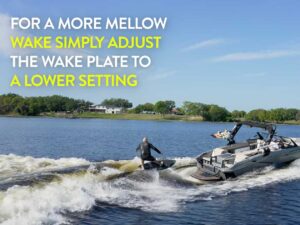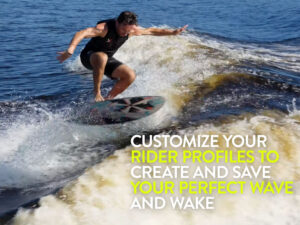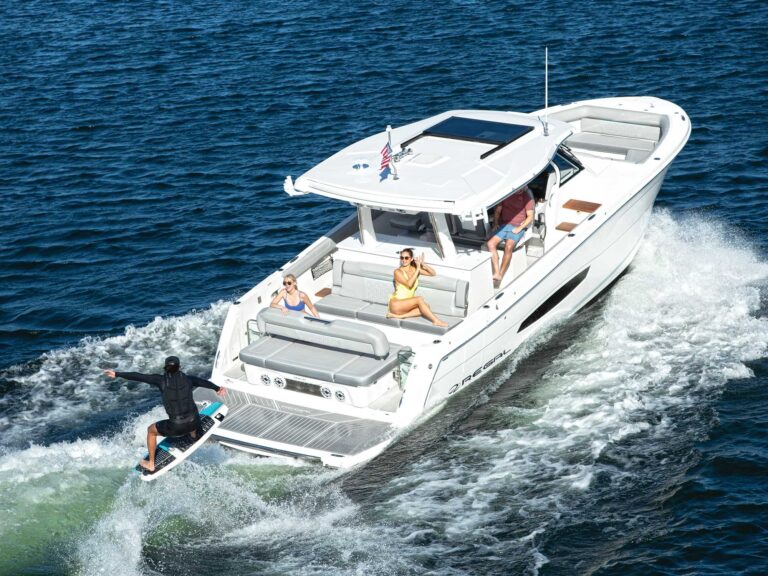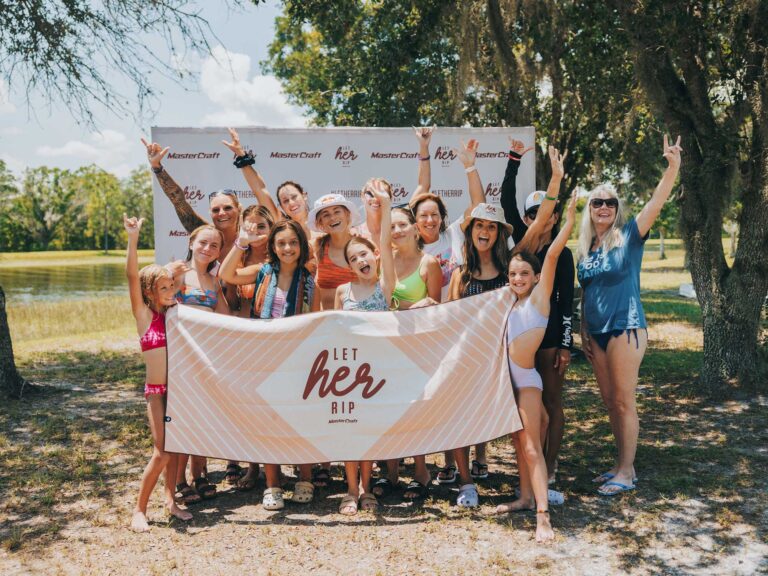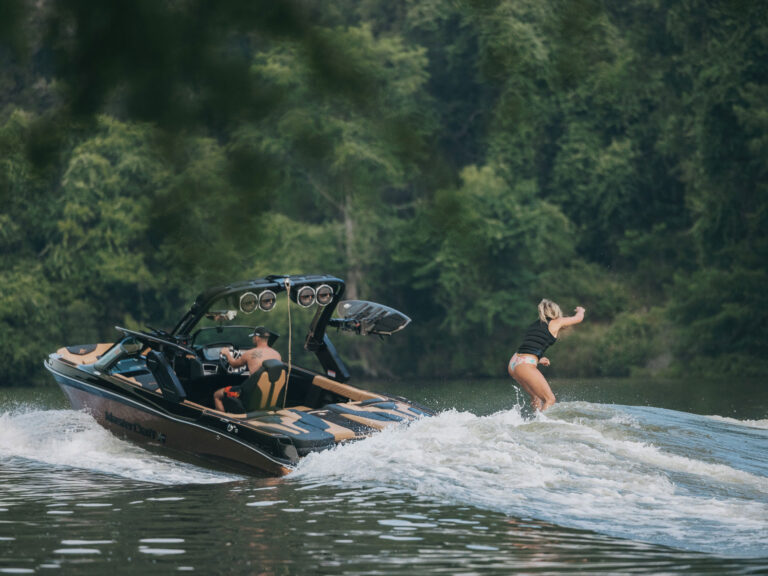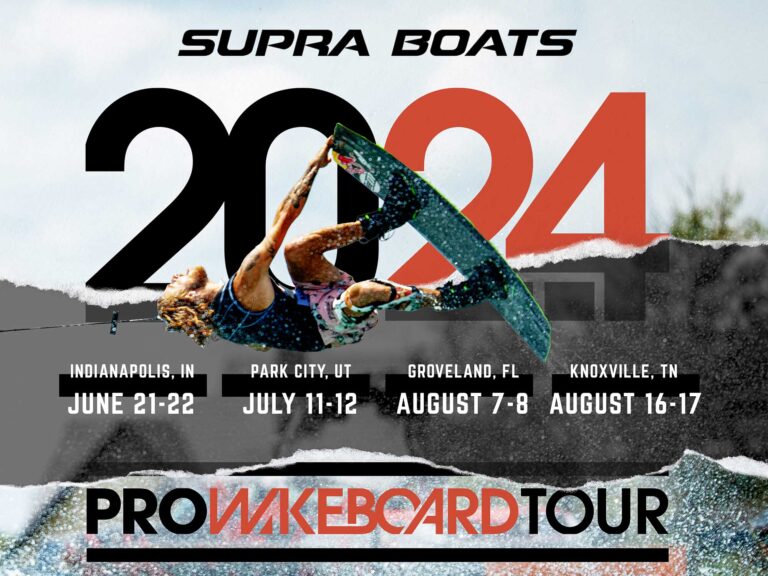You’ve finally decided which wakeboard boat you want to buy, and now you’re considering the second most important decision of the process — which engine to get. I know a lot of guys want to flex their machismo and get the biggest thing made. This is coming from a guy whose dad put a 454 in a 19-foot MasterCraft when I weighed 75 pounds. It clearly wasn’t needed, but it made him feel awesome every time he sat behind the wheel. To make the right decision, first ask yourself these questions.
What size boat am I getting?
Generally you can pair your engine with the size of your boat. Most companies have three engines in its line. If you buy a smaller boat, you can typically get away with the smaller engine. If you’re getting a bigger boat, you probably want the middle or biggest engine.
How much ballast am I running?
If you’re only running stock ballast in your boat, the smaller engine is probably fine for you. If you’re adding a lot of extra ballast or loading up a ton of people, you’re going to want to step it up a notch. After all, nothing’s worse than owning the ultimate wake machine and not being able to get it moving.
What is the main purpose of my boat?
Some people have a boat to float around in, run around the lake and then get a couple of sets in. Others have little kids they pull with no ballast and then they want to juice it up for themselves. Lastly, there are the guys who don’t leave the boat ramp without filling every possible ounce of ballast. Answer this question honestly. Otherwise, you might end up with too much or too little engine.
Here’s a great example of why you really need to think through your engine size. A lot of people think getting a smaller engine is going to help them with fuel-efficiency. That’s not always the case. If you’re running a lot of ballast or at a higher altitude, a smaller engine will have to work harder. A bigger engine will help you pop out of the hole and also run way lower rpm, especially when paired with the right prop. Ultimately, a bigger engine will be more cost-effective than a smaller engine that is continually struggling.
The main thing is to really pinpoint what you want out of a boat performancewise and how you’ll use it. Making the wrong decision can be incredibly frustrating and costly. Still, I’m sure there are a ton of guys just like my dad who will get that big block no matter what. — Travis Moye
